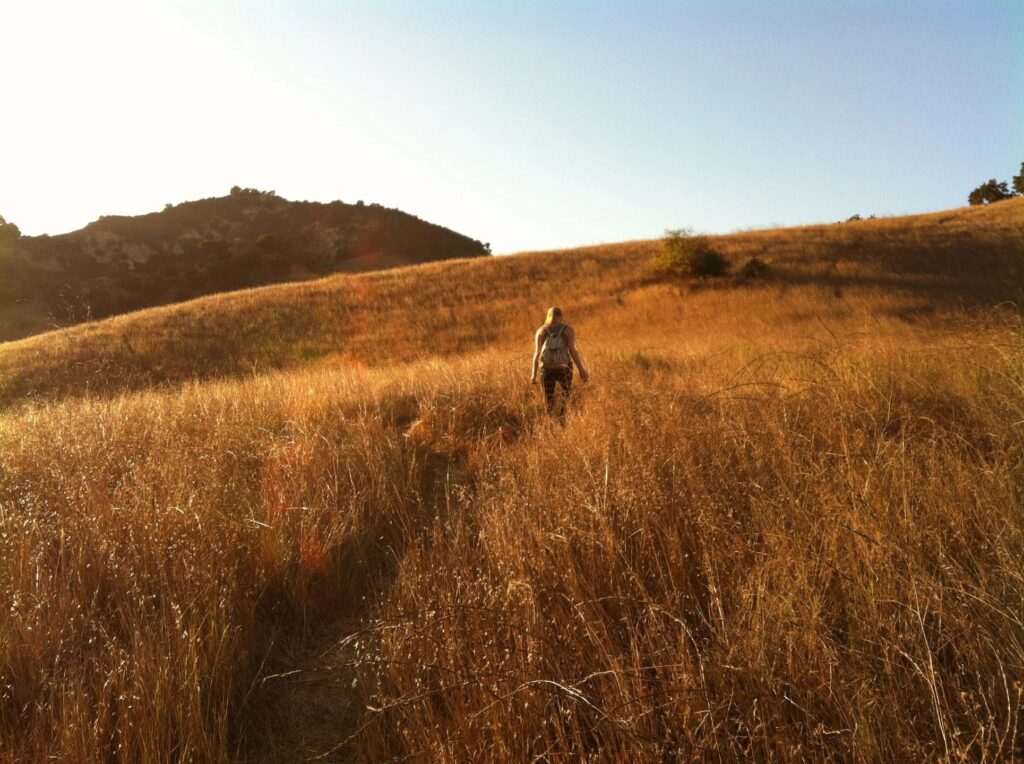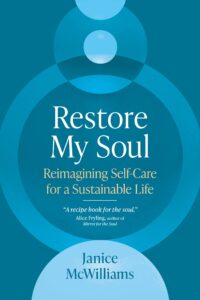I cannot begin to tell you about all the conversations I’ve had with clients about analyzing their busy times within that framework. “The problem,” I say, “is when you’re in high gear un relentingly. But having both fast and slow times in a year . . . that’s okay!” It’s easy for most Christians to understand why we need slowness, but many of us have an intense fear of moving fast. Some people are so afraid of burning out that they refuse to stretch their capacity. Others aren’t afraid but have firm work/life boundaries as an act of faith. This topic came up when I was leading a workshop with Christian professionals, most of whom were in their twenties.

Rafaela was describing her busy season, the time between January and April when accountants face a glut of tax preparation and audits. She and her husband made a system for those months: She’d forgo the morning routine with their kids for a quick workout, then be in the office by 7:00 a.m. to fit in a ten-to-twelve-hour day.
Jenna, another participant, balked: “They can’t make you do that!
That’s awful.”
“That’s just what it takes. During busy season I often work Saturday mornings too.”
“You shouldn’t do that! Put in your eight hours and get out of there. I think you need better boundaries.”
Rafaela furrows her brow. “I couldn’t keep my job, and I would definitely never make partner with that attitude.”
“You have to keep your priorities straight,” Jenna retorts. “You’ll make partner if that’s God’s plan.”
At this point, I jump in. “Wait, wait . . . a lot of jobs have a busy season. Khalil, you work in student services, right?” Khalil nods.
“Do you have a busy season?”
He chuckles and says, “Don’t even try to get with me from August to mid-September. My whole department is sprinting then. I’m lucky to get even one day off during the r amp- up to m ove- in and orientation. It’s nuts.”
I look at Judith, a pastor, and ask, “What about you? Is there a busy season?”
“Christmas and Easter. Contemplative? Um . . . no. More like minimarathons, both of them.”
“Someone said they work retail; who was that?”
Tammy speaks up: “I haven’t left town for Thanksgiving in five years. I can usually sneak in the T-Day meal, but we work late the day before and Thanksgiving night. And then Black Friday I might get into the store at 4:00 a.m. So. Much. To. Do. We ask everyone to pull long hours before and during our semiannual sale too. But what Jenna said gets to me. Am I doing something bad by working like this?”
work late the day before and Thanksgiving night. And then Black Friday I might get into the store at 4:00 a.m. So. Much. To. Do. We ask everyone to pull long hours before and during our semiannual sale too. But what Jenna said gets to me. Am I doing something bad by working like this?”
It’s a good question that gets the group debating boundaries, health, and priorities. A good bit of defensiveness and criticism gets kicked up along the way. Jenna isn’t the only one who pushes against the idea of busy seasons; several participants see limiting themselves as an act of faithfulness.
I rein them in. “What if God affirms having boundaries and moving fast?”
Everyone speaks at once. I attempt to slow things down. “Can anybody think of a busy season in the Bible?”
For a moment, everyone is stumped. Khalil finally offers, “Well, agrarian cultures like the ancient Hebrews would have harvest times. And it seems like all the cooking in preparation for a lot of those festivals was crazy too.”
Tammy fills in. “Passover prep is still crazy hard. My college roommate was an Orthodox Jew, and her whole family had to clean the house until there wasn’t a crumb anywhere. Their cars, too. They were all cleaning like mad for weeks.”
Judith pipes up, saying, “Jesus had some crazy long days of ministry too. Remember the times big crowds came to him for healing?”
“Right, great examples. A lot of jobs seem to follow those patterns of busy seasons and light seasons, times of stretching one’s capacity to the limit followed by times of light work.”
Rafaela speaks up again. “One thing I love about being an accountant in my firm is that we slow down in April and May, then all summer everyone gets a half day on Fridays or a three-day weekend every other week.”
“Nice. What do people think? Jenna?”
“Is God truly okay with busy seasons?” she asks. “I burned myself out, and I’ve had to really change things to have a healthy life.”
“Those changes are certainly an act of faithfulness,” I respond. “I don’t doubt that. But having faithful and healthy rhythms may look different for different people. I just don’t want people to doubt that they can stretch. I want all of you to feel confident that you can have life rhythms and faithful boundaries and work really hard sometimes.”
“There’s nothing wrong with jobs with a busy season, if they also have slow and medium seasons. That seems to be what God sets up for Israel through patterns of festivals, work, and rest. What I consider harmful are jobs that are always ramped up. Or jobs that never require you to stretch or challenge your capacity.”

Peter, a web designer, bravely shares: “I wasn’t considered for a promotion I really wanted. My unwillingness to work late might have been an issue. We have huge projects with hard deadlines, and I haven’t ever been willing to budge. I thought if God wanted us to do it, then we’d be able to finish it in an eight-hour day.”
Our conversation continued along this vein as everyone considered what faithfulness in work might look like.
I have clients on both sides of the spectrum: those who don’t slow down and those who won’t speed up. Both are afraid, wondering either What will happen if I let up? or What will happen if I speed up? Having good life rhythms grows our confidence that we can, should, and will do both. Like my computer, we need rhythms of moving fast and slow, starting and stopping, sprinting and strolling. Rhythms provide structure for our inner-world self-care. Without rhythms, we either go fast too long or stay slow so long that we begin to think fast is bad for us. Fast is only bad in the absence of slow.
Yearly Rhythms in Real Life
It’s fine—even exciting and life-giving—to have periods of intensity in areas of your life, but you must also honor your limits. Sometimes this means adjusting or creating new rhythms that make an intense season doable.
Early in the COVID-19 pandemic, I had a huge challenge managing my caseload. Like most mental health workers, I had several inquiries a week from people seeking treatment. My two specialties, treating anxiety and working with couples, made me a magnet. Folks were anxious, and marriages were suffering. The challenge was keeping a reasonable caseload for my own self-care. Telling potential new clients my schedule was full wasn’t a problem, but when former clients called me, finding themselves off-kilter again from pandemic stressors, I wanted to treat them! They were my beloved clients, and we could resume treatment where we’d left off. So, I stretched my work hours beyond my previous boundary.
This worked out okay; most of my speaking and workshop engagements had been canceled. As the world shut down, I had hardly any evening or weekend commitments, so I had true downtime that I could count on in a way that just wasn’t reality in normal life. Moving “fast” by having more clients worked because there were slow portions of almost every day. Even the virtual happy hours, game nights, book clubs, and small-group meetings were shorter because of everyone’s Zoom fatigue. As life started to look more normal, many clients felt better and met with me less often or finished their work with me altogether. So, as evening and weekend activities resumed, my work hours resettled.
Different life situations, different phases of life, and shifting priorities all factor in to how, whether, and when we can push harder at work. The key is keeping some daily and weekly rhythms, no matter how intense the pace.
A Sustainable Life
Most of us aren’t living sustainably because we haven’t learned how to apply life-giving rhythms that help restore our souls. With the pressures and expectations of our society, we’re becoming less and less likely to do daily, weekly, and yearly rhythms well without intentional effort. The fact that we can affect our rhythms isn’t known and utilized enough! In my therapy practice, I talk to people about these concepts nearly every day. Momentum carries most of us toward the fast end of the spectrum, and we tend to stay there too long. People who wake up to that reality are inclined to overcorrect, either refusing to have fast seasons or conceptualizing them as inherently bad.
With appropriate rhythms applied to the various seasons of your life, your soul can thrive, even when certain roles require more of you. Remember, Jesus came to give you a rich and satisfying life! Finding the right rhythms for the right time is how you get closer to that life.
Janice McWilliams is a psychotherapist in private practice, is a certified spiritual director, and has worked with InterVarsity Christian Fellowship for 28 years in many capacities from direct student ministry to staff supervision and  training. She is a pastoral counselor, spiritual director, speaker, trainer, and writer. She speaks and trains on self-care, marriage, and the Enneagram. Her blog promotes spiritual, relational, and psychological transformation, and she is the coauthor of The Small Group Leaders’ Handbook.
training. She is a pastoral counselor, spiritual director, speaker, trainer, and writer. She speaks and trains on self-care, marriage, and the Enneagram. Her blog promotes spiritual, relational, and psychological transformation, and she is the coauthor of The Small Group Leaders’ Handbook.
Janice’s degrees include a master’s in pastoral counseling from Loyola University in Maryland and a master of divinity from Howard University.
Taken from Restore My Soul: Reimaging Self-Care for a Sustainable Life by Janice McWilliams © 2022. Used by permission of NavPress. All rights reserved. Represented by Tyndale House Publishers, Inc.






